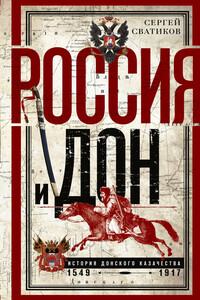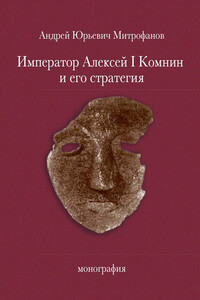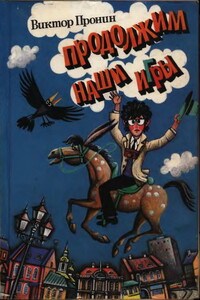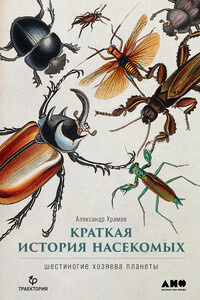Английский язык для специальных и академических целей: Международные отношения и зарубежное регионоведение. Часть 1 - [28]
is social equality and an absence of class hierarchy and privilege. Over a century later, in the 1960s, Tocqueville's ideas on democracy were echoed in the sociological studies of American political scientists.
5. Colonial times. In 1765 British America was comprised of thirteen colonies which came under the jurisdiction of Parliament in London, and whose people were subjects of the King (George III at that time). Each of the colonies had its own political institutions, but these were relatively powerless, with no legislative and few executive powers.
6. Jefferson, Thomas (1743-1826) — US politician and 3rd President. A delegate to the Second Continental Congress (1775), he drafted the Declaration of Independence. Jefferson was Governor of Virginia (1779-1781), Minister to France (1785) and Secretary of State (1790). He served as Vice-President under John Adams (1797-1801) and as President (1801-1809).
7. The pursuit of happiness — a quote from the American Declaration of Independence. “We hold these truths to be self-evident, that all men are created equal, that they are endowed by their Creator with certain inalienable Rights, that among these are Life, Liberty and the Pursuit of Happiness” (American Declaration of Independence).
COMPREHENSION ASSIGNMENTS
1. The things that Americans venerate about America breed conditions that they despise.
2. The American Creed (the Americans' distinct set of values) has fired economic advance.
3. The emphasis on individual striving, success and liberty can inhibit social control and loosen people's sense of communal obligation.
4. Because Americans worship individual effort, they are more tolerant of failure and inequality than other nations.
5. To some extent, the proof that American virtues and vices are connected comes from abroad.
6. Even in Colonial times, America was less rigid socially than Europe. Land was a great leveler.
7. Colonial America brimmed with hereditary privileges and arbitrary power.
8. But in America, the legitimacy of unchangeable social distinction collapsed. Jefferson said that men would advance based on “virtue and talent” and not on birth.
9. The Revolution “made the interests and prosperity of ordinary people — their pursuit of happiness — the goal of society and government.”
10. Progress is never sufficient, because happiness — though constantly pursued — can never be guaranteed.
11. Popular culture is democratic and, therefore, sometimes shallow and offensive.
1. How does American patriotism compare with that of Europeans?
2. What is it about the American society that makes its citizens so proud of their country?
3. What features of their society do Americans despise?
4. Why, according to the author, is it important that Americans should see the connection between the two?
5. What achievements of the American society can be attributed to their national values?
6. What are the negative effects of individualism and striving for success on the American society?
7. What social changes in the countries that have recently acquired political freedom prove, in the author's opinion, his assumption?
8. In what historical conditions was the American national mindset shaped?
9. How can Americans' distrust of authorities be accounted for?
a) of the country you study
b) of Russia
c) of your native country
VOCABULARY PRACTICE 1
Unit II. US: from Democracy to Empire?
1. to help the growth or development of something
2. to respect deeply, regard as sacred
3. to produce or lead to (something) over a period of time
4. appropriate to the current time, period, or circumstances; of contemporary interest
5. to comprehend fully
6. to overwhelm with a large number or amount
7. to exist together as a combination
8. to attempt to repair or improve something in a casual or desultory way
9. an undertaking involving chance, risk, or danger
10. to prevent or slow down the activity or occurrence of (something)
11. to put (something or someone) in a dangerous situation
Unit II. US: from Democracy to Empire?
12. something that tends to reduce or eliminate differences among individuals
13. depending on individual discretion (as of a judge) and not fixed by law; not restrained or limited in the exercise of power
14. showing that you respect someone and want to treat them politely
15. the process of trying to achieve something

Предлагаем вашему вниманию адаптированную на современный язык уникальную монографию российского историка Сергея Григорьевича Сватикова. Книга посвящена донскому казачеству и является интересным исследованием гражданской и социально-политической истории Дона. В работе было использовано издание 1924 года, выпущенное Донской Исторической комиссией. Сватиков изучил колоссальное количество монографий, общих трудов, статей и различных материалов, которые до него в отношении Дона не были проработаны. История казачества представляет громадный интерес как ценный опыт разрешения самим народом вековых задач построения жизни на началах свободы и равенства.

Монография доктора исторических наук Андрея Юрьевича Митрофанова рассматривает военно-политическую обстановку, сложившуюся вокруг византийской империи накануне захвата власти Алексеем Комнином в 1081 году, и исследует основные военные кампании этого императора, тактику и вооружение его армии. выводы относительно характера военно-политической стратегии Алексея Комнина автор делает, опираясь на известный памятник византийской исторической литературы – «Алексиаду» Анны Комниной, а также «Анналы» Иоанна Зонары, «Стратегикон» Катакалона Кекавмена, латинские и сельджукские исторические сочинения. В работе приводятся новые доказательства монгольского происхождения династии великих Сельджукидов и новые аргументы в пользу радикального изменения тактики варяжской гвардии в эпоху Алексея Комнина, рассматриваются процессы вестернизации византийской армии накануне Первого Крестового похода.

Виктор Пронин пишет о героях, которые решают острые нравственные проблемы. В конфликтных ситуациях им приходится делать выбор между добром и злом, отстаивать свои убеждения или изменять им — тогда человек неизбежно теряет многое.

«Любая история, в том числе история развития жизни на Земле, – это замысловатое переплетение причин и следствий. Убери что-то одно, и все остальное изменится до неузнаваемости» – с этих слов и знаменитого примера с бабочкой из рассказа Рэя Брэдбери палеоэнтомолог Александр Храмов начинает свой удивительный рассказ о шестиногих хозяевах планеты. Мы отмахиваемся от мух и комаров, сражаемся с тараканами, обходим стороной муравейники, что уж говорить о вшах! Только не будь вшей, человек остался бы волосатым, как шимпанзе.

Настоящая монография посвящена изучению системы исторического образования и исторической науки в рамках сибирского научно-образовательного комплекса второй половины 1920-х – первой половины 1950-х гг. Период сталинизма в истории нашей страны характеризуется определенной дихотомией. С одной стороны, это время диктатуры коммунистической партии во всех сферах жизни советского общества, политических репрессий и идеологических кампаний. С другой стороны, именно в эти годы были заложены базовые институциональные основы развития исторического образования, исторической науки, принципов взаимоотношения исторического сообщества с государством, которые определили это развитие на десятилетия вперед, в том числе сохранившись во многих чертах и до сегодняшнего времени.

Эксперты пророчат, что следующие 50 лет будут определяться взаимоотношениями людей и технологий. Грядущие изобретения, несомненно, изменят нашу жизнь, вопрос состоит в том, до какой степени? Чего мы ждем от новых технологий и что хотим получить с их помощью? Как они изменят сферу медиа, экономику, здравоохранение, образование и нашу повседневную жизнь в целом? Ричард Уотсон призывает задуматься о современном обществе и представить, какой мир мы хотим создать в будущем. Он доступно и интересно исследует возможное влияние технологий на все сферы нашей жизни.